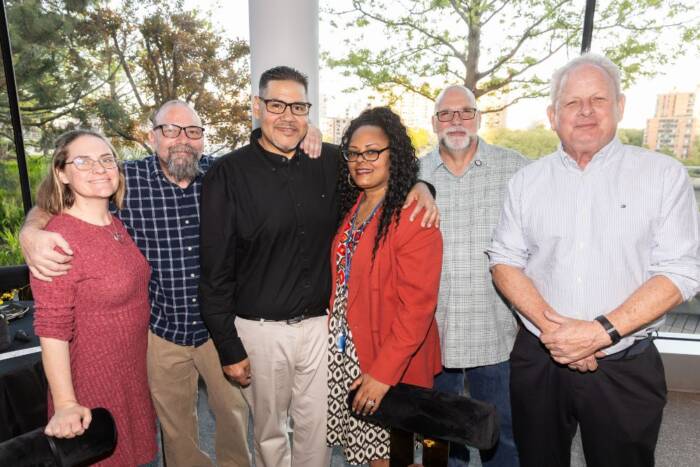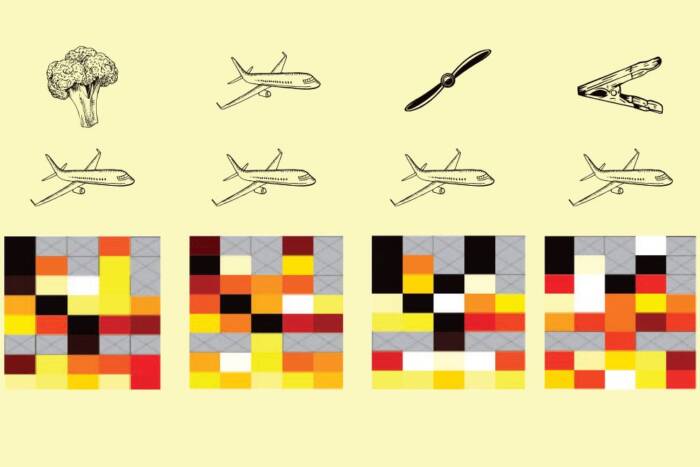Joel Cohen and Torsten Wiesel receive Golden Goose Awards for research with unexpected benefits

Joel E. Cohen (top) and Torsten Wiesel
Joel E. Cohen, Abby Rockefeller Mauzé Professor and head of the Laboratory of Populations(opens in new window), and Torsten Wiesel, President Emeritus and Vincent and Brooke Astor Professor Emeritus, have each received a Golden Goose Award.(opens in new window) The award honors federally funded research that may seem obscure but has led to major breakthroughs. Cohen, Wiesel, and other recipients were announced on September 10 and officially presented their awards at a ceremony on September 17, in Washington, D.C.
Cohen, a mathematical population biologist, and his collaborator Christopher Small, a geophysicist at Columbia University, were honored for mapping human populations worldwide based on geographic altitude. Motivated by pure curiosity, the project(opens in new window) turned out to have many practical applications. For example, it has informed microchip manufacturing and food production and packaging, and also has implications for biomedical research and the treatment of human disease.
Companies like Intel, Proctor & Gamble, and Frito-Lay, as well as biomedical researchers and public health professionals have consulted Cohen and Small about their data.
At Rockefeller, Cohen’s research is focused on both human and nonhuman populations. His lab develops concepts useful for understanding “ensemble properties,” population characteristics such as birth and death rates that describe groups but not individuals. Cohen has been on Rockefeller’s faculty since 1975, and has been a professor of earth and environmental sciences at Columbia University since 1995.
Wiesel, a neurophysiologist, and his collaborator David Hubel, who died in September 2013, were honored for their discoveries as to how the mammalian brain processes visual information and that system’s ability to rewire itself after birth. Their 20-year collaboration began at The Johns Hopkins University School of Medicine and continued at Harvard Medical School.
A simple accident lead to their breakthroughs. While monitoring neurons in previously unstudied parts of cats’ brains, the researchers showed the animals small spots of light or dots projected onto a screen. One of the researchers pushed a glass slide a little too far. This brought its edge into view on the projector, and triggering a surprising burst of activity in these neurons. This lead to the discovery that particular visual neurons in cats and monkeys respond to lines and contours with specific orientations. Their work over time accumulated to form a functional map of neurons that process the input from both eyes.
Later, Wiesel and Hubel demonstrated that although the brain at birth contains all the necessary neural connections to process visual information, it can rewire itself in response to a blockage, specifically, the loss of sight in one eye. This ability, known as neuroplasticity, appeared to fade with age. With this knowledge, doctors began treating children born with cataracts as early as possible, with much better outcomes.
For their work on visual processing, Wiesel and Hubel shared the Nobel Prize in 1981. Wiesel came to Rockefeller in 1983, and served as the university’s president from 1991 to 1998. Since retiring as president, he has focused on international science advocacy.
Launched in 2012, the Golden Goose Awards were created at the urging of U.S. Representative Jim Cooper of Tennessee, an advocate for basic science, who saw the need for a response to the Golden Fleece Awards. Given out by U.S. Senator William Proxmire, the Golden Fleece Awards targeted federal spending Proxmire considered wasteful, often singling out odd or obscure-sounding research. However, the impact of science can be hard to predict.
The Golden Goose Awards’ steering committee includes universities, nonprofit associations, and other entities.


